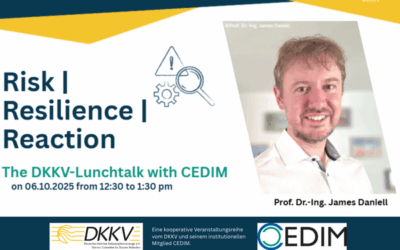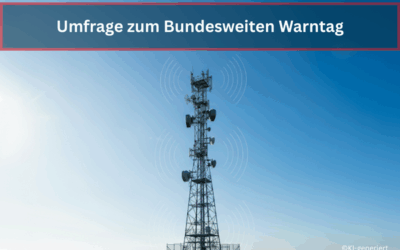The DKKV is…
German Committee for Disaster Reduction e.V. (ger.: Deutsches Komitee Katastrophenvorsorge e.V.)
Newsblog
Opening of the new IQIB in Bad Neuenahr-Ahrweiler
Today (15 September), the DKKV attended the grand opening of the new premises of the Institute for Qualifying Innovation Research and Consulting GmbH (IQIB) in the historic thermal baths in Bad Neuenahr-Ahrweiler. The IQIB is a subsidiary of the German Aerospace...
German CanSat competition invites scientifically interested school pupils to participate
From now on, school pupils aged 14 and above who are enthusiastic about science and space travel can apply for the 12th German CanSat Competition 2025/26. The teams develop a mini satellite the size of a beverage can, which is launched during a rocket mission to an...
Risk I Resilience I Reaction: Between the private and public world: Post-disaster lossassessment in the government-industry-academia nexus!
The second session of the joint Lunchtalk series by DKKV and its institutional member CEDIM will take place on 6 October 2025 at 12:30 PM. This time, the focus will be on rapid and reliable post-disaster loss assessments — and how approaches from academia, industry...
Survey on the 2025 National Warning Day launched
On 11 September 2025, the ‘Nationwide Warning Day’ took place in Germany. In order to further improve the warning system for the population in future, the Federal Office for Civil Protection and Disaster Assistance (BBK) is conducting a population survey in...
Follow us





What is disaster risk reduction?
Storms, natural hazards and extreme events can quickly become a danger to people and the environment. But climate change, extreme urbanization, power outages and fires also offer potential hazards.
A disaster occurs when the functioning of a community or society is impaired or interrupted and, as a result, high human, material, economic and ecological losses occur that cannot be managed alone.
Precautionary measures can help to reduce the consequences and impact of the disaster. Depending on the hazard and personal circumstances, the precautionary measures to be taken may vary.
Find out more about potential hazards and individual precautionary measures on our topic pages.





